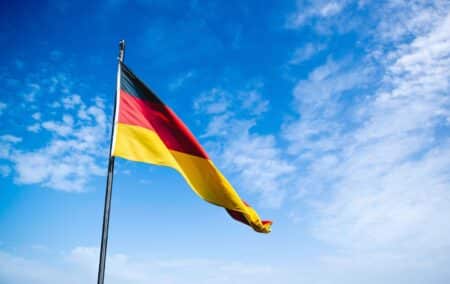Germany could have a new governing party after the election to be held later this month.
This is after latest polls show that the Social Democratic Party of Germany (SPD) is now leading opinion polls, with the support of about 26% of Germans.
It currently governs as the junior partner in a coalition with the Christian Democratic Union (CDU), with this party having the support of about one-in-five Germans.
The last time the SPD was the senior partner in a governing coalition was between 1998 and 2005, when it governed with the Greens. Conversely, the CDU has been the leading governing party since 2005.
Not far behind the CDU and SPD in the polls are the Greens, with the support of about 17% of Germans. At one stage the Greens were polling above both the SPD and CDU but its support has become softer as election crunch time approaches.
Two other parties are polling at above 10% – the liberal Free Democratic Party (FDP) has about 12% of the vote while the Eurosceptic Alternative for Germany (AfD) is just behind at 11%.
The hard-left Linke party is at 7% (in Germany a party needs to secure at least 5% of the popular vote to gain a seat in the German parliament, the Bundestag).
Given Germany’s proportional representation system a coalition is inevitable and a number of combinations are possible as it currently stands.
Analysts believe that one of the most likely coalitions will be the SPD, the Greens, and the FDP (a ‘traffic light’ coalition). A second coalition with a high likelihood of emerging is one where the CDU governs with the Greens and the FDP (a ‘Jamaica’ coalition).
Any governing coalition will almost certainly exclude the AfD, which many Germans view as too right wing, as well as the Linke, the roots of which lie in the ruling party of the former East German communist state, the Socialist Unity Party of Germany.
Any governing coalition is difficult to predict but it does seem possible that the CDU will be out of government for the first time since 2005.

